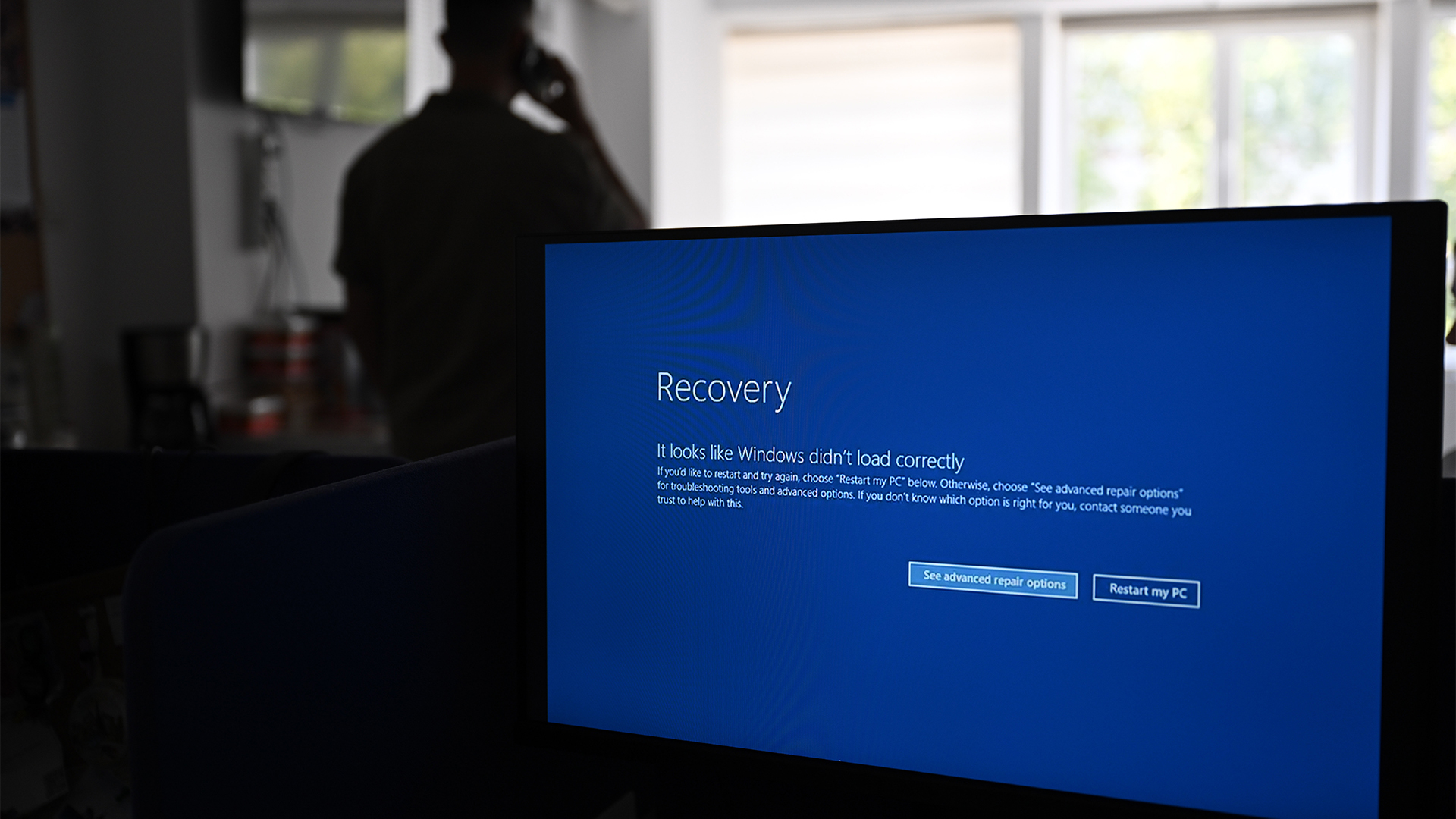Why the CrowdStrike outage was a wakeup call for developer teams
The CrowdStrike outage caused widespread chaos last year, but have developer teams learned from the crisis?


Software development leaders say their organization did not have a robust incident response plan in place to contend with disruption before the 2024 CrowdStrike outage.
A report from IT services provider Adaptavist surveyed development leaders on how their organization reacted to the CrowdStrike outage in July 2024, which affected an estimated 8.5 million devices.
The respondents came from organizations with over $10 million in revenue based in the UK, US, and Germany.
The incident has been reported to have cost US Fortune 500 companies $5.4 billion, between £1.7 and £2.3 billion to the UK economy, and affected 98% of companies according to Adaptavist’s research.
Looking back on the event, 84% respondents admitted that their organization did not have an adequate incident response (IR) plan in place before the outage.
Of those who said they did have a plan in place, only 16% reported that they were actually effective in helping them recover from the fallout caused by the event.
Adaptavist noted that most organizations had never experienced a large-scale outage like that before, or the consequences they can have on their IT operations and, as such, struggled to understand what would be required to minimize the impact of such an incident.
Get the ITPro daily newsletter
Sign up today and you will receive a free copy of our Future Focus 2025 report - the leading guidance on AI, cybersecurity and other IT challenges as per 700+ senior executives
But the report also found that 80% of organizations claim to have drawn positive outcomes from the crisis, which brought about what it described as a “remarkable change among businesses”.
How the CrowdStrike outage forced changes in IT resilience
Adaptavist's report claimed the CrowdStrike outage “opened IT leaders’ eyes to the wider robustness of their entire software development practices and processes”.
For example, 81% of respondents said they adopted more robust software development methodologies as a result, with one-third stating they totally overhauled their engineering processes to prevent similar disruptions moving forward.
Among the list of changes leaders made to their development practices, 54% committed to IR planning, with just under half identifying monitoring and observability, unit testing, integration testing, CI/CD, and agile methodologies, as other key change areas.
Other frequent answers included manual code reviews (47%), grey box testing (47%), white box testing (46%), and system testing (45%).
In addition to operational changes, Adaptavist found the CrowdStrike outage also prompted changes in how organizations invest in software development. It reported 86% of businesses had boosted investment in software development practices and training as a direct response to the incident.
The key investment areas listed by the respondents were agile and DevOps practices and training (89%), software testing training (89%), cybersecurity training (88%), and IR training (86%).
The incident also sparked a hiring spree, Adaptavist noted, with 99.5% of organizations stating they plan on expanding their technical teams, with quality assurance roles (36%), IT operations (34%), software developers (32%), and DevOps engineers (31%) top of the list for recruitment.
Businesses still plagued by outdated development culture
Yet cultural challenges remain, the report cautioned, with 44% of IT leaders stating that their organization still prioritizes speed over quality in software development.
Furthermore, just under two-fifths of leaders said they worry that their team’s excessive workloads will lead to another major incident.
A quarter of respondents warned their organization still advocates for a culture of fear over learning to reduce risk, with 40% stating they still fear acknowledging their mistakes.
A lack of psychological safety is also hindering innovation at their organization, according to 44% of IT leaders, with 42% claiming their firm’s security is compromised by a fear of admitting one’s mistakes.
RELATED WHITEPAPER

Adaptavist suggested that skills shortages are only making this problem worse, advising businesses to invest in building a culture that seeks to address burn out and stress among engineers to attract talent.
“The ongoing war for IT talent is likely exacerbating these issues, but building a culture which invites open and honest collaboration, and addresses the issue of over-worked and over-blamed teams is the key to creating a welcoming environment for more IT professionals and delivering a far more resilient, efficient and secure IT environment,” the report advised.

Solomon Klappholz is a former staff writer for ITPro and ChannelPro. He has experience writing about the technologies that facilitate industrial manufacturing, which led to him developing a particular interest in cybersecurity, IT regulation, industrial infrastructure applications, and machine learning.
-
 Should AI PCs be part of your next hardware refresh?
Should AI PCs be part of your next hardware refresh?AI PCs are fast becoming a business staple and a surefire way to future-proof your business
By Bobby Hellard Published
-
 Westcon-Comstor and Vectra AI launch brace of new channel initiatives
Westcon-Comstor and Vectra AI launch brace of new channel initiativesNews Westcon-Comstor and Vectra AI have announced the launch of two new channel growth initiatives focused on the managed security service provider (MSSP) space and AWS Marketplace.
By Daniel Todd Published
-
 Red teaming comes to the fore as devs tackle AI application flaws
Red teaming comes to the fore as devs tackle AI application flawsNews Only a third of organizations employ adequate testing practices in AI application development, according to new research, prompting calls for increased red teaming to reduce risks.
By Ross Kelly Published
-
 ‘Frontier models are still unable to solve the majority of tasks’: AI might not replace software engineers just yet – OpenAI researchers found leading models and coding tools still lag behind humans on basic tasks
‘Frontier models are still unable to solve the majority of tasks’: AI might not replace software engineers just yet – OpenAI researchers found leading models and coding tools still lag behind humans on basic tasksNews AI might not replace software engineers just yet as new research from OpenAI reveals ongoing weaknesses in the technology.
By George Fitzmaurice Published
-
 Java developers are facing serious productivity issues: Staff turnover, lengthy redeploy times, and a lack of resources are hampering efficiency – but firms are banking on AI tools to plug the gaps
Java developers are facing serious productivity issues: Staff turnover, lengthy redeploy times, and a lack of resources are hampering efficiency – but firms are banking on AI tools to plug the gapsNews Java developers are encountering significant productivity barriers, according to new research, prompting businesses to take drastic measures to boost efficiency.
By Solomon Klappholz Published
-
 Software security debt is spiraling out of control – remediation times have surged 47% in the last five years, and it’s pushing teams to breaking point
Software security debt is spiraling out of control – remediation times have surged 47% in the last five years, and it’s pushing teams to breaking pointNews Software security flaws are taking longer to fix than ever, with remediation times having grown by 47% in the last five years.
By Nicole Kobie Published
-
 Westcon-Comstor bags major distribution deal with CrowdStrike
Westcon-Comstor bags major distribution deal with CrowdStrikeNews The pair’s new distribution agreement aims to capture new market opportunities for Irish channel partners
By Daniel Todd Published
-
 Why are so many AI projects destined for failure? Inexperienced staff, poor planning, and a shoehorned approach to agile development are all stifling innovation
Why are so many AI projects destined for failure? Inexperienced staff, poor planning, and a shoehorned approach to agile development are all stifling innovationWhile agile development practices work well in many circumstances, devs are encountering serious problems applying the methodology in AI projects
By Nicole Kobie Published
-
 CrowdStrike hits back at Delta’s “public posturing” as war of words intensifies
CrowdStrike hits back at Delta’s “public posturing” as war of words intensifiesNews CrowdStrike has responded to strong criticism from the CEO at Delta Air Lines, rejecting claims of gross negligence
By Solomon Klappholz Published
-
 CrowdStrike faces shareholder lawsuit after global IT failure
CrowdStrike faces shareholder lawsuit after global IT failureNews Investors are lining up a class action lawsuit amid allegations CrowdStrike misled them
By Nicole Kobie Published